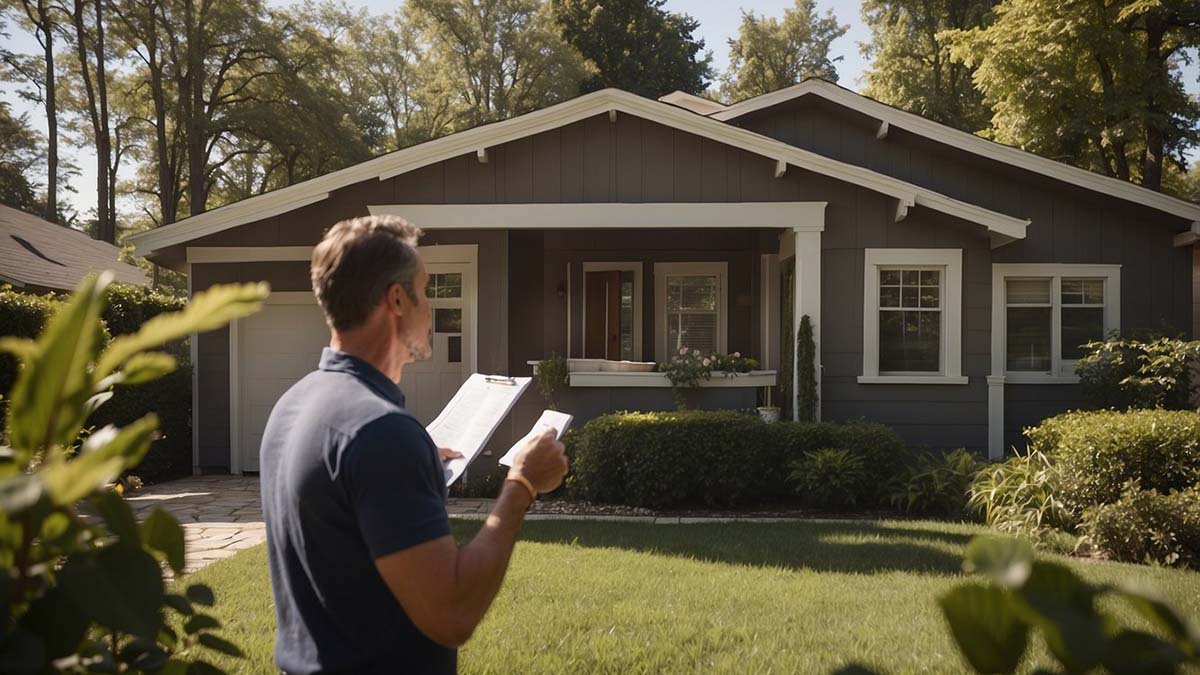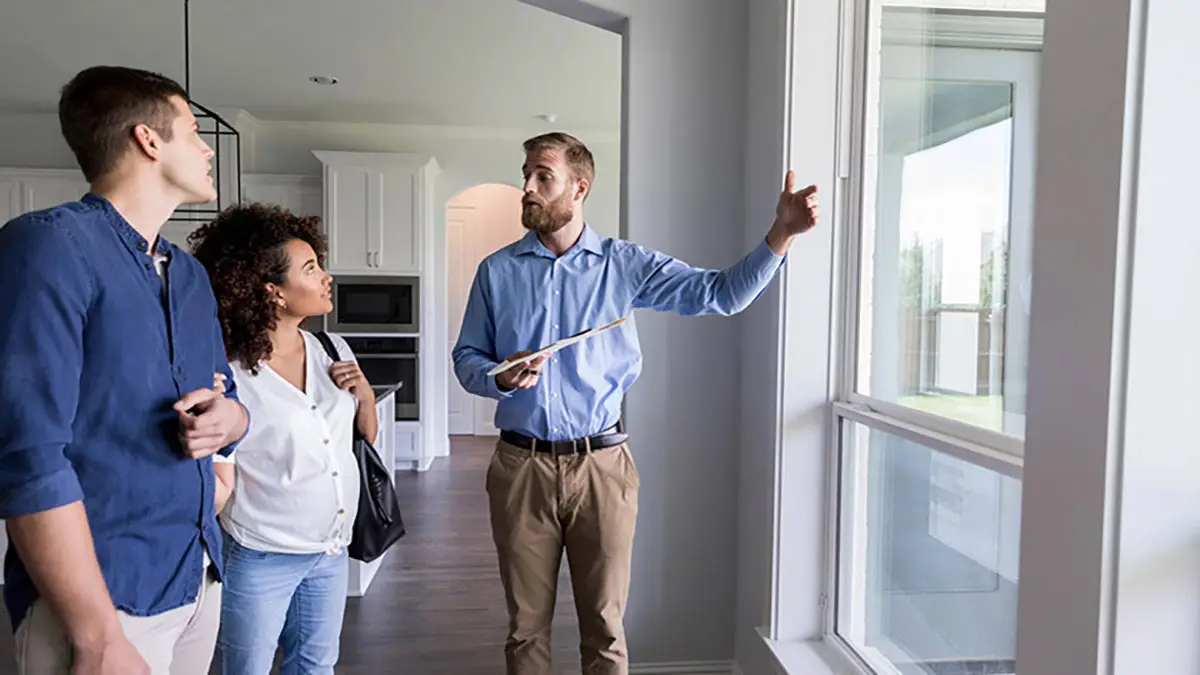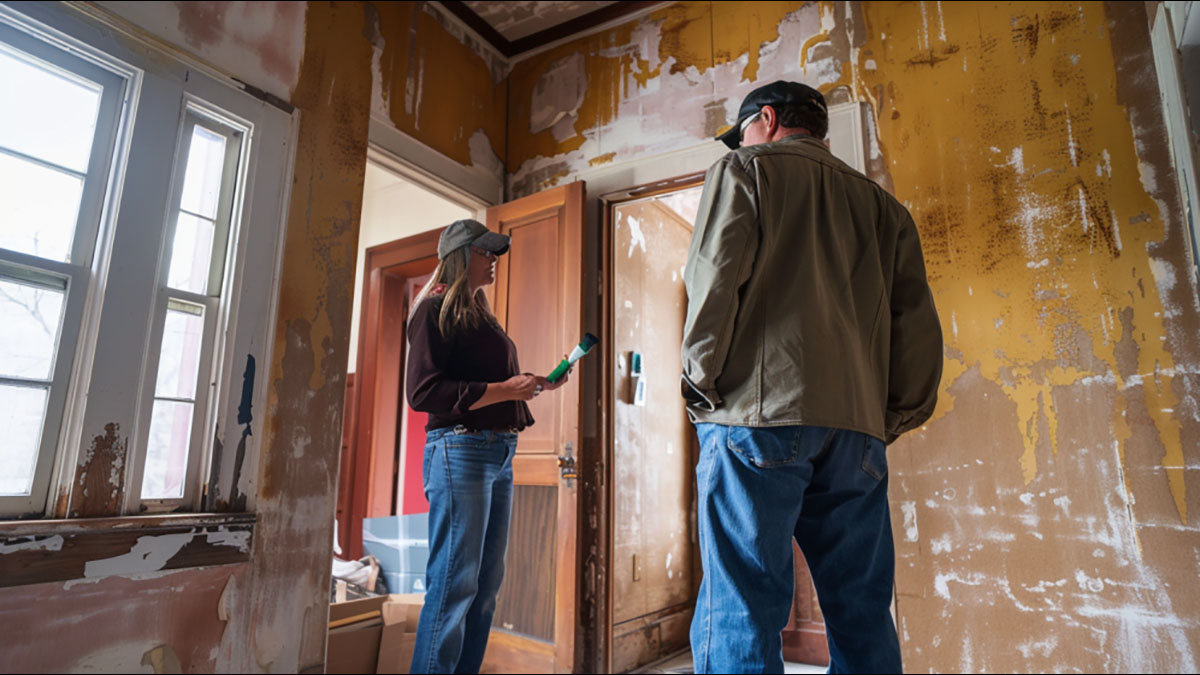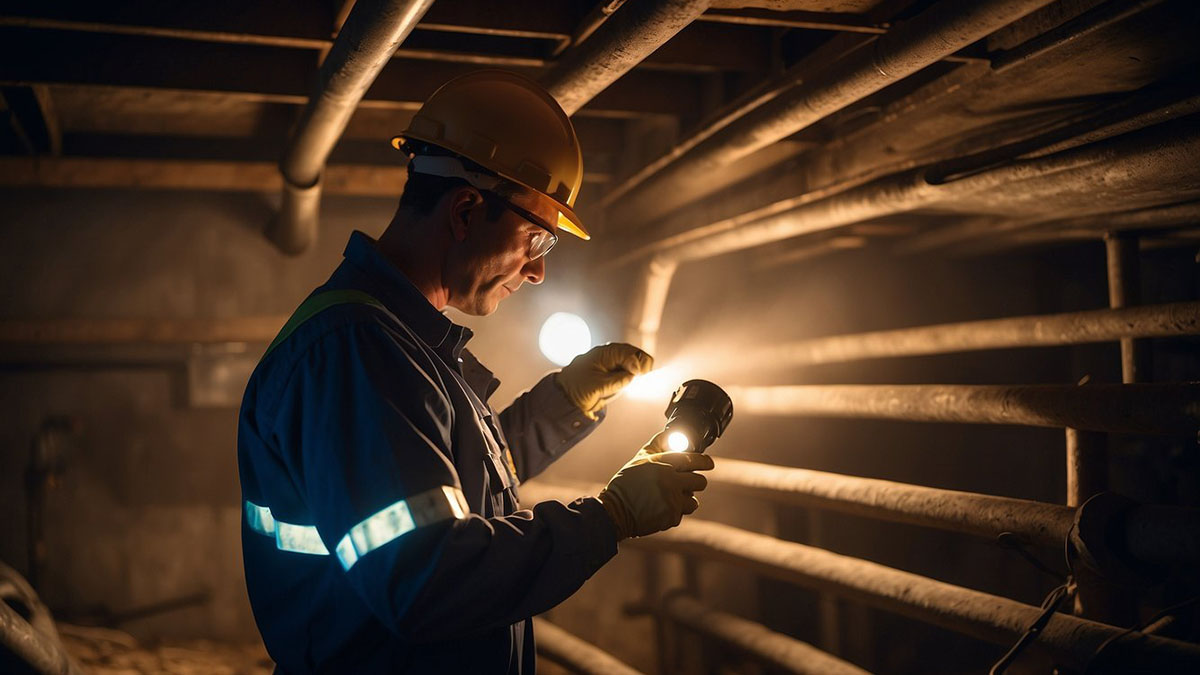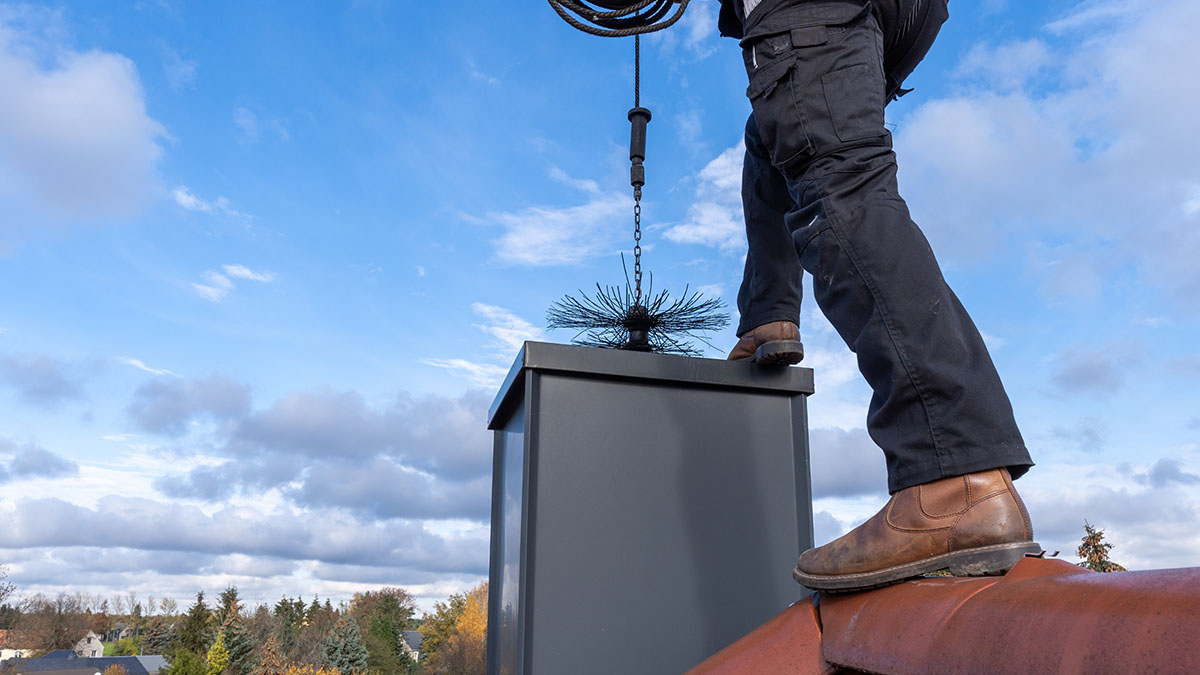Nobody wants to spend a massive sum of their hard-earned cash on a property that will cost a fortune to repair. To avoid this, many people prefer to do a home inspection before closing to find any big issues. If you’re buying a house, you may wonder about the difference between a home inspection and a structural inspection.
A home inspector visually inspects a property’s structure, electricity, plumbing, HVAC, and safety. Structural inspectors specialize in foundation and structural flaws.
What I’m about to say may sound like a riddle, but it’s not. Here’s the thing: Some home inspectors are also structural engineers, but not all engineers offer structural home inspections.
Allow me to explain. For most home inspectors, standard home inspections are their primary business activity. It’s all they do. Some home inspectors have backgrounds as structural inspectors.
Most professional engineers don’t inspect homes as their primary source of income. They analyze structural conditions in existing and newly built homes and commercial properties. Structural engineers only visit home sites if a big problem needs their expertise.
Structural Inspection vs Home Inspection
| Home Inspection | Structural Inspection | |
|---|---|---|
| Cost Estimate | $300 – $500 | $450 to $900 Average or $150 – $200 per hour |
| Carried out by | Certified Home Inspector | Residential Structural Engineer |
| What the inspection assesses | The overall condition and safety of the systems, including electrical, plumbing, heating, and HVAC. This also includes a visual inspection of the visible structural components of the house. | The structural integrity and safety of the property’s foundation, walls, floors, and roof. |
| Governing bodies/association | State Licensing, ASHI, or NACHI | State’s engineering licensing board |
| Time to receive an inspection report | 24 – 48 hours | Up to 10 days |
It is important to assess a house’s flaws, particularly in its systems and structure. Structural home inspections are done to get a professional assessment of major property damage.
Read our article to learn about Common Safety Issues Found During Home Inspections.
Some people hire a home inspector and a professional engineer to be extra careful. It’s worth considering, especially in major home purchases or if you already suspect structural dmage.
You only need to hire a home inspector and a structural engineer if there is a problem.
The good news is that you might not need both inspections. It depends on the house’s age and condition. You may need to hire both a home inspector and a structural engineer if:
- Your home inspector finds significant structural concerns.
- You intend to renovate the home, which will require structural changes.
Let’s explain different inspections and how they impact home sales.
Home Inspection: The Basics
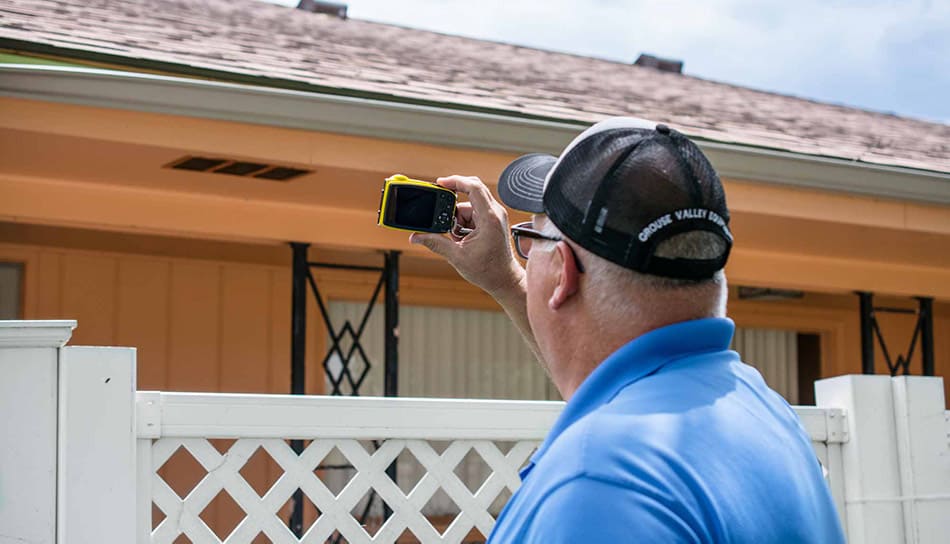
Let’s start by looking at the most common two types of examination, the general home inspection. When someone sells a house, the buyer usually hires an expert to check the property.
The home inspector checks for things that could make the house unsafe or not work right. They also look for major mechanical problems. Mostly, they aren’t looking for cosmetic issues in the home.
House Structure Inspection
When professionals inspect a house, they check the foundation, walls, roof, and structural defects. Potential buyers and homeowners must inspect the home to ensure its safety and longevity.
Home inspectors must get a license and certification from an association to work in their state. Some states still do not have licensing requirements for home inspectors.
Home inspectors promise to follow a strict ethical code. They assess properties and protect their clients’ rights.
Most home inspectors in the USA seek certification from two leading associations. These are NACHI and ASHI. To join these organizations, home inspectors must pay a yearly fee and pass tough exams. Certified home inspectors give their clients credibility and trustworthiness.
The inspector must pass tests on ethics and standards to become a full member of these associations.
ASHI (American Society of Home Inspectors)
In 1976, a group of home inspectors created ASHI to set standards and improve their profession.
ASHI didn’t exist before, so the new home inspection industry needed more organization. Inspections were subjective and lacked standards.
ASHI members must follow the ASHI Code of Ethics. Home inspectors are not allowed to sell real estate or fix homes they inspect. Members must report on each property according to the ASHI Standards of Practice.
The highest certification for a home inspector with ASHI is an ASHI Certified Inspector. To meet this requirement, they must pass a 200-question exam that takes 4 hours.
This exam is also used for home inspector licensing in over half of the United States. To apply, they need to provide a list of at least 250 paid home inspections. These inspections should meet or exceed the ASHI Standards of Practice.
InterNACHI (International Association of Certified Home Inspectors)
NACHI was founded in 1990 and is the largest home inspector association in the world. They have over 16000 members in the USA and 24600 registered members worldwide.
There are many different training and certification programs. Home inspectors can get over 40 types of certifications. They can also get more than 700 hours of education.
The main goal is to provide members with ongoing education, online training, and marketing services. They also aim to equip members with the knowledge, skills, and abilities needed for competent inspections.
InterNACHI’s highest level of certification is the Certified Professional Inspector. Home inspectors must pass the free and open InterNACHI online exam to achieve this rank. To become certified, they must pass a Code of Ethics and the Residential SOP online course. In addition, they must do a paid home inspection or send four practice reports.
InterNACHI provides exceptional training for home inspectors. The training offers many online video lessons taught by top teachers in the industry.
What Do Home Inspectors Look For?
All home inspector associations have similar standards. They all search for the same things during a general home inspection. Home inspectors look for structural issues, such as foundation cracks, and assess the property’s condition.
They mostly inspect homes for real estate transactions. Inspectors look for signs of structural damage and ensure safety standards are met to reassure prospective buyers and prevent costly repairs.
Here are more primary major components and basic systems that home inspectors observe:
Water Damage
Water damage is one of the most severe issues a home can face. Water can cause many problems if it gets into the roof or near the foundations of a home. Structural damage, like uneven floors and storm damage, can cause rot and electrical problems. Beware of mold.
Roof Leaks or Damage
The roof is one of the most critical aspects of the home. The property is protected from weather, insulation keeps it warm in winter, and pests are kept out. Home inspectors will check for a roof that sags, leaks, or has drainage problems. They will also look for signs that the roof needs to be replaced. Here is a list of common roofing issues found in home inspections.
Electrical System Problems
Electrical issues are one of the leading causes of house fires in the USA. Home inspectors will pay close attention to any faulty or hazardous electricity in the house. You might notice problems like exposed wiring, DIY wiring, lights flickering, buzzing, or dimming.
Plumbing System Problem
Home inspectors will look for any evidence of faulty plumbing in the home. These issues are especially prevalent in older homes with sub-par plumbing systems. Typical issues to look out for are poor drainage, mold, rust, low water pressure throughout the house, and sediment build-up.
Exterior Problems
The home inspector will spend some time assessing the exterior of the property. This includes noting the vegetation, such as trees and plants near the house. If large trees are within 10 m of the property, this could be marked as a defect. The reason is that trees with large roots can affect the foundation and structure of the property.
Another thing that home inspectors look out for is the gradients and overall landscape surrounding the home. If the grading is negative, it could mean that the house might have water problems. Excess water could flood the property, causing water penetration issues.
Insulation and Ventilation issues
Part of the inspection will include assessing the insulation and ventilation of the property. This usually entails observing the home’s HVAC systems to ensure that air flows through the property as it should. Inadequate ventilation can lead to problems such as mold and water damage.
Heating System Failures
You’ll want a functioning heating system if you live in a cold state during winter. The home inspector will check these systems to see if they are working and report any that are not functioning or not accessible.
Pest Infestations
Home inspectors don’t check for pests like ants or roaches; they focus on wood-destroying organisms like termite infestations. If left unchecked, termites and other wood-destroying organisms can cause massive property damage.
Basic Structural Integrity Assessments
The inspector will check the foundation, basement, crawl space, and other structural building components. During the assessment, they describe the home’s foundation type and where to access the underfloor area.
They only report issues like water getting in, foundation moving, wood framing damage, and wood touching soil.
Home inspectors do not have to report how well the structural systems and components work. Inspectors cannot decide if the house’s structure and parts are good enough. They only describe them.
Suppose they believe that the home is in an adverse structural state. If that happens, a structural engineer should check the home’s structure.
Structural Inspection: The Basics
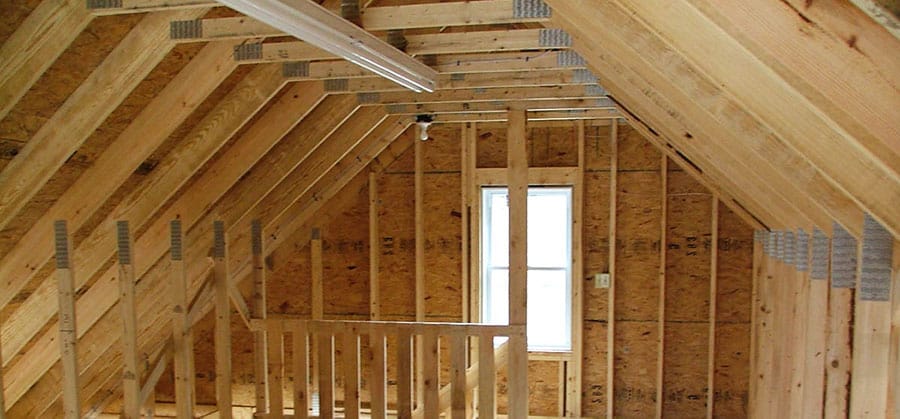
A structural engineer examines the structure to assess its overall stability and strength.
For most home buyers, a dedicated structural assessment may be unnecessary. As properties age, the chances of structural faults and failures increase, especially in the roof and foundations.
A structural engineering inspection checks for problems caused by time after the building is finished. If you are buying a new home, you can skip this inspection.
What Do Structural Engineers Inspect?
Foundation
If the foundation has problems, it can cause the structure to fail. You should find and fix these problems right away. Engineers often inspect foundations for cracks, wood rot, or other weakening problems.
Roofing
During a regular home inspection, a licensed engineer checks the roof closely to find any problems with its structure. Determining a roof’s overall health can be difficult. That’s why asking a certified structural engineer for their opinion is crucial.
Severe Cracking
Cracks can indicate that there is a severe structural failure within the property. However, this all depends on the type of crack and its severity. Some cracks are purely cosmetic. Hiring a specialist is important to find out if the cracks are severe.
Sloped Floors
When the wooden joists that support the floor structure bend, it can cause sloping floors. Older houses may have some bending, but too much bending is a bigger structural issue.
Bowing, Leaning, or Bulging Walls
Like sloped floors, uneven walls usually indicate structural issues in the house. If these problems aren’t fixed soon, they can seriously damage the house.
As a home buyer, it’s worthwhile paying the extra money to hire a professioanl engineer to assess the property. Not only will this ensure that it’s safe for its inhabitants, but it could also save you a ton of money in repairs.
Repairing structural damage on a property can be costly and time-consuming. For example, a roof replacement usually costs $10,000 to $30,000+. You could pay $600 for a structural engineering report to prevent costly repairs.
Buyers Inspection and Sellers Inspection
During a property sale, there are usually buyer and seller inspections. The buyer’s inspection happens after the offer is accepted but before the sale is final. After the home inspection, the buyer can renegotiate the deal based on the results.
Before listing the house, the homeowner can do a pre-listing inspection called a seller’s inspection. Some sellers do this to prepare their property for sale, ensuring a smooth and easy process.
This also allows them to fix any problems during an inspection, saving time when closing the deal. It also helps stop the homebuyer from changing the agreement because of unexpected faults in the report.
After the inspection, you must disclose the important findings on the property disclosure. This does not mean the seller has to divulge all the home inspection findings.
Structural Inspection vs Home Inspection FAQs
What is a structural inspection?
Structural inspection is the analysis of all of the structural elements of a home or building. This includes walls, floors, ceilings, walkways, stairs, roofs, etc.
What will a structural engineer tell me?
Structural engineers assess buildings, ensuring safety, compliance, and functionality. They identify issues, offer repair strategies, manage project planning, and oversee construction. Their expertise spans materials, design, regulations, and specialized areas like preservation and sustainability.
What does a structural report look like?
Licensed engineers conduct a structural assessment of a building’s condition. The report includes key findings, detailed observations, material analysis, and actionable recommendations. It knows the structure’s health well. It helps owners and buyers with repairs, solutions, and maintenance advice.
When should the base structure be inspected?
Inspecting the structure before buying a property or making major changes is important. This is especially true after natural disasters or as buildings get older. They seek expert advice to ensure safety, identify issues early, and meet legal requirements.
How much for a structural engineer inspection?
Most structural engineer inspection costs will vary based on the scope of work. If you only need a structural engineer to inspect a wall or LVL beam, you can expect to pay about $200 for a site visit. Most engineers charge a $150 to $200 hourly rate with a $200 minimum.
How do I find structural engineers near me?
Ask your colleagues, friends, or family for recommendations for a structural engineer. To find structural engineers, ask building contractors or your local Realtor board.
Final Thoughts
Various issues are examined during a regular home inspection, excluding structural integrity. Hire Professioanl engineers or licensed structural inspection services to get a written report. They can check the structure’s condition, find problems with walls or foundations, and fix drainage issues. They provide detailed inspection reports to ensure property stability and safety.
To ensure the home is as expected, buyers should do both inspections. If the property is not too old and the general inspection found no problems, you can skip the structural assessment.
For more, see our list of home inspection red flags.


